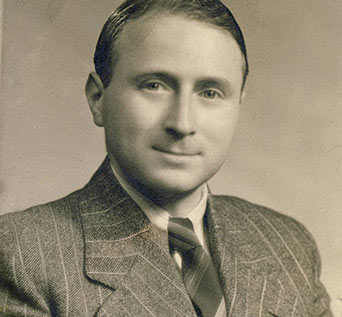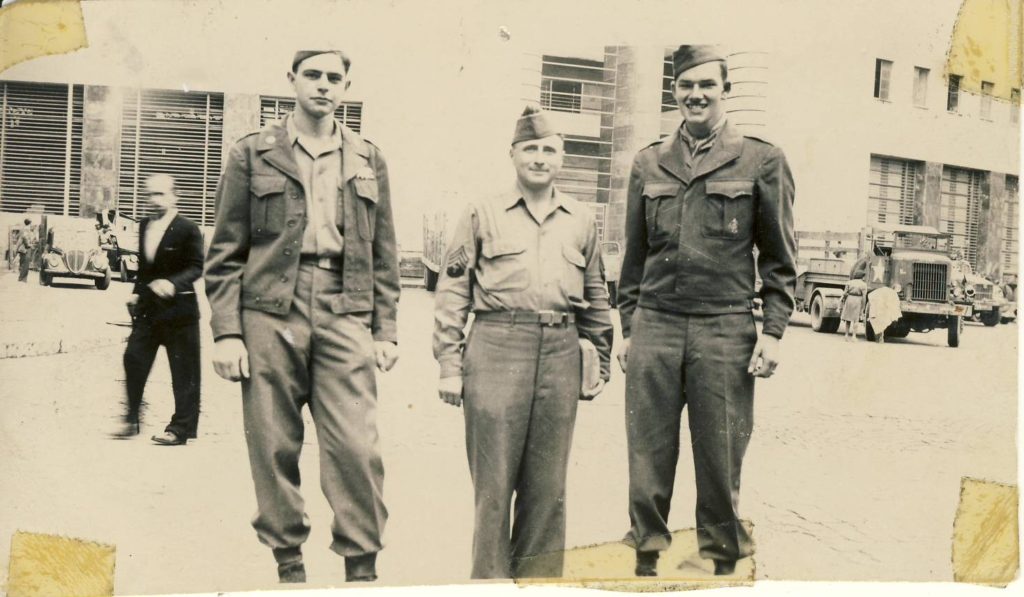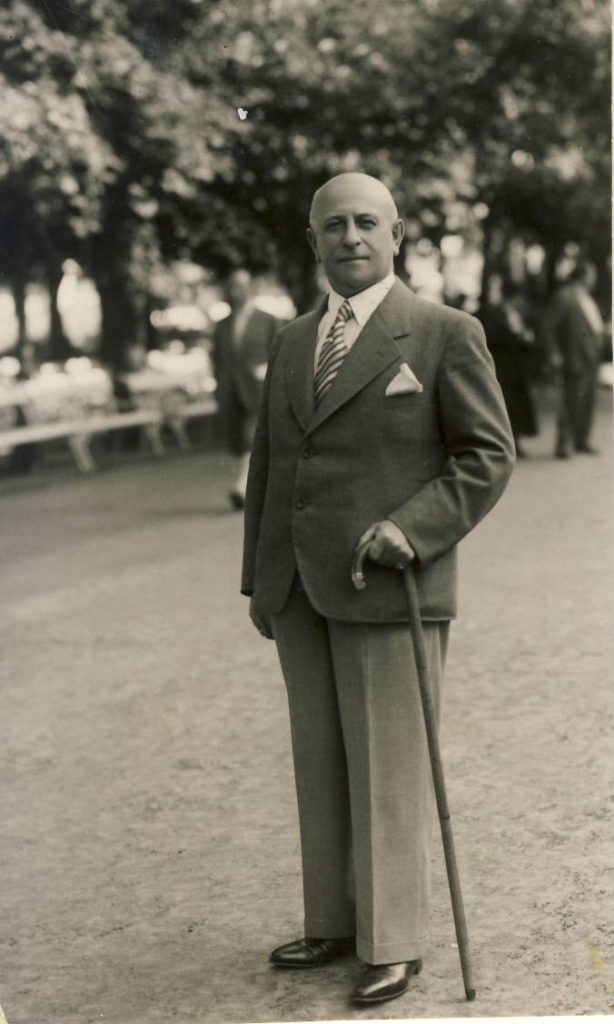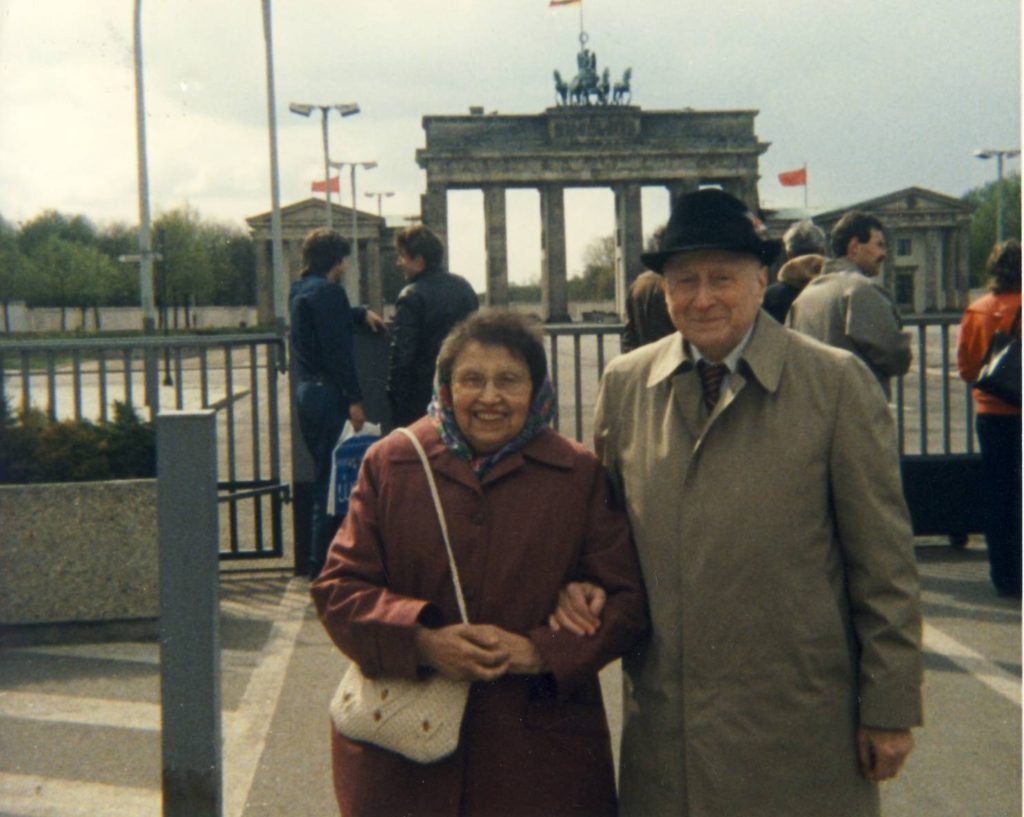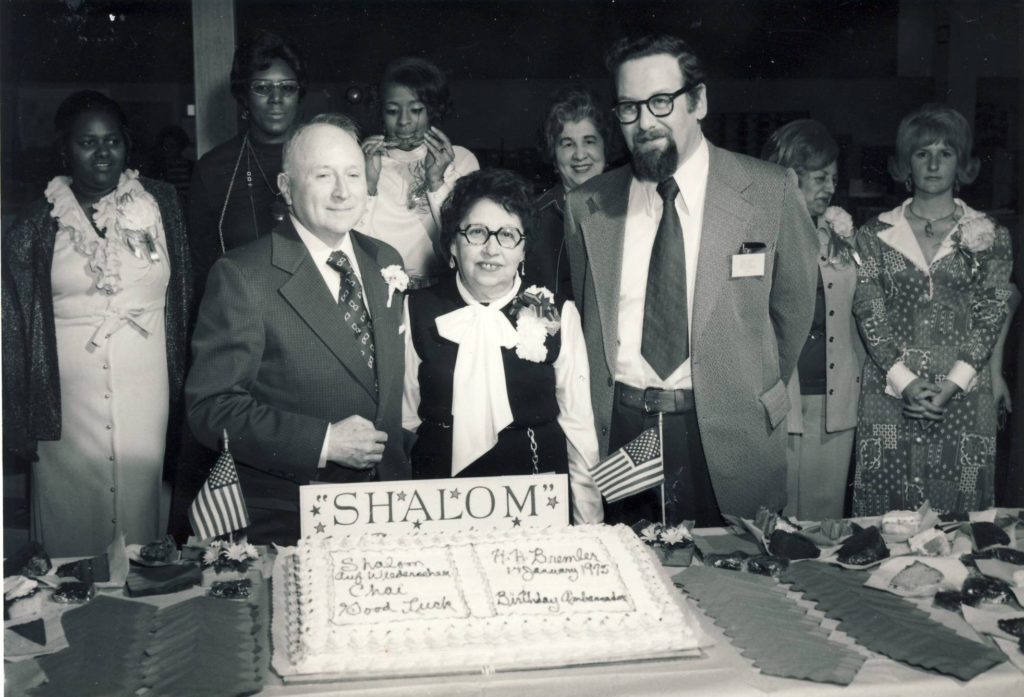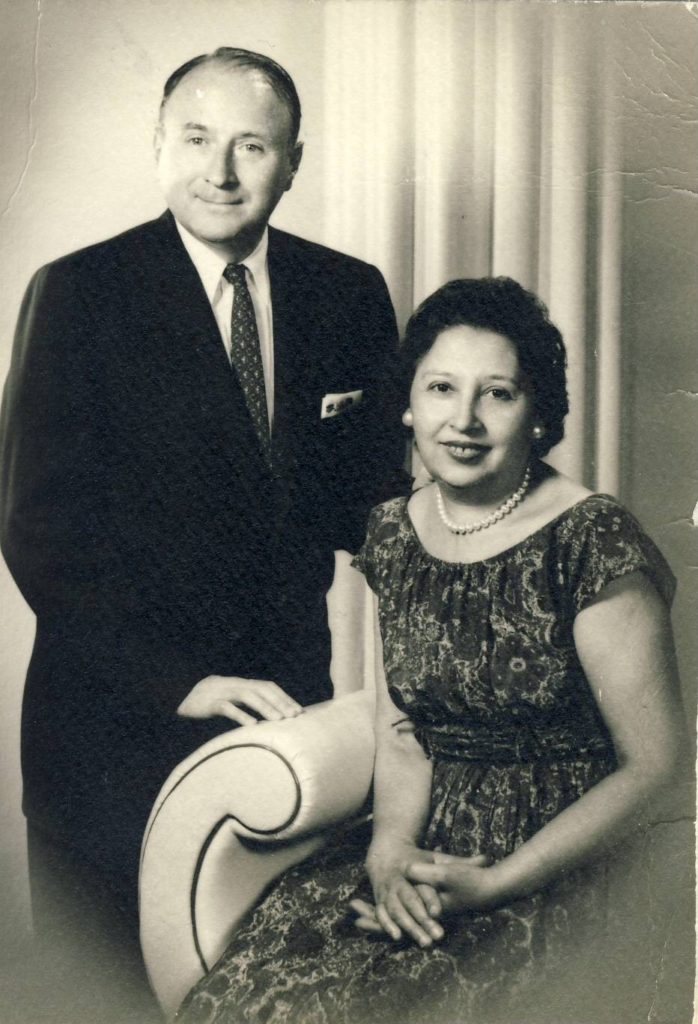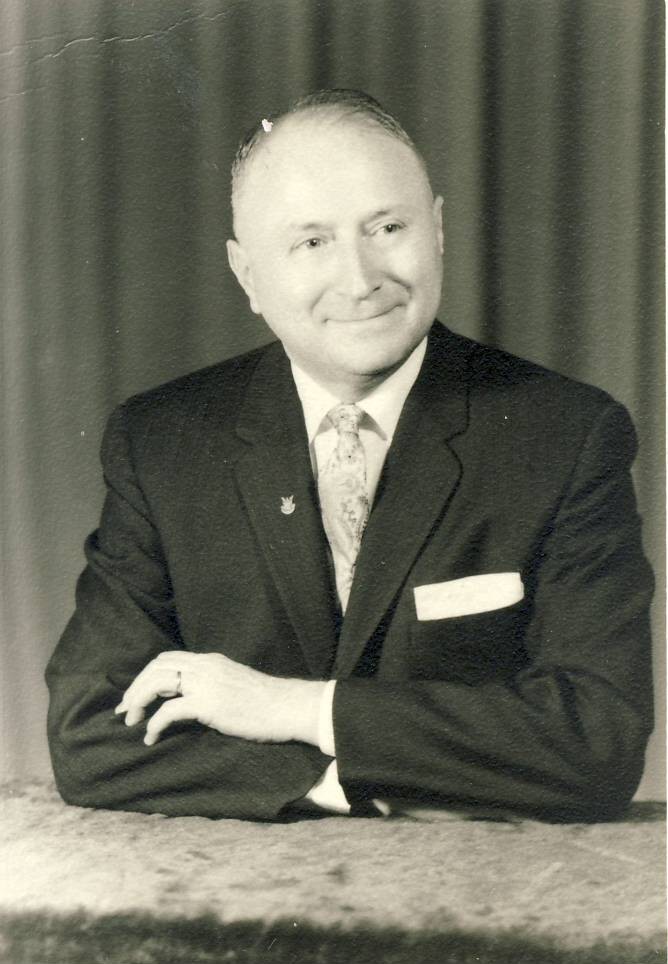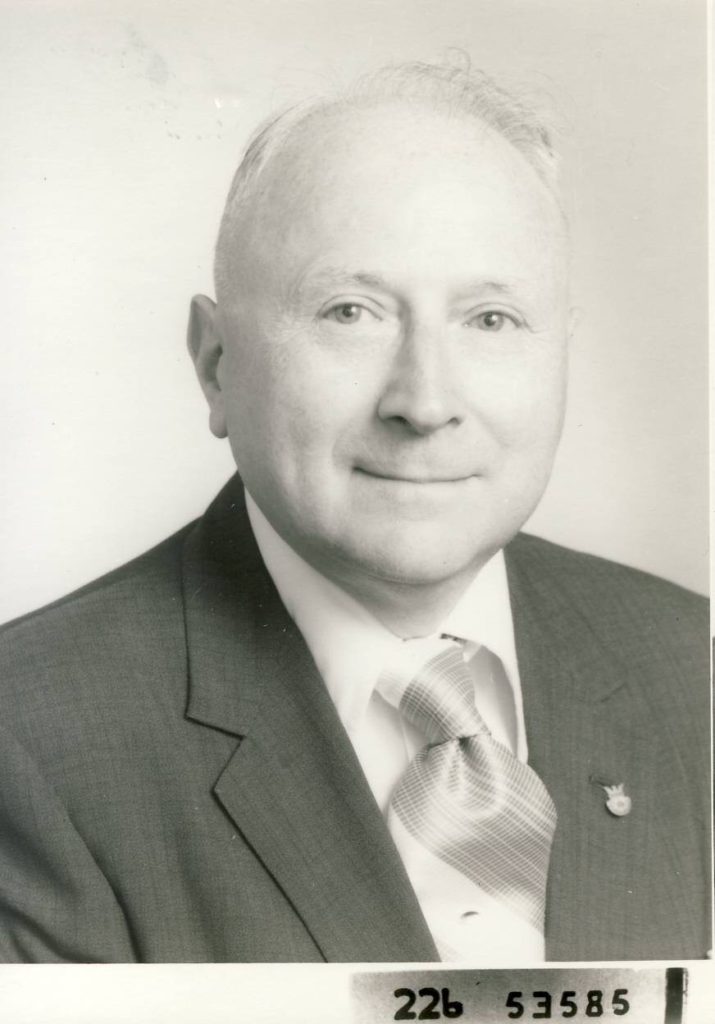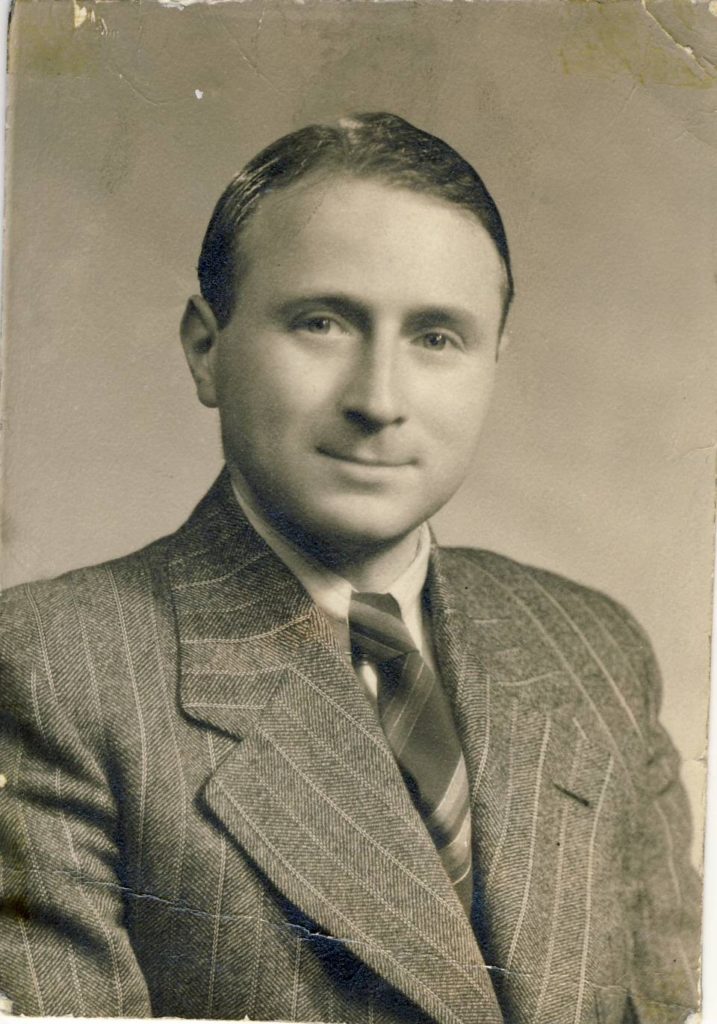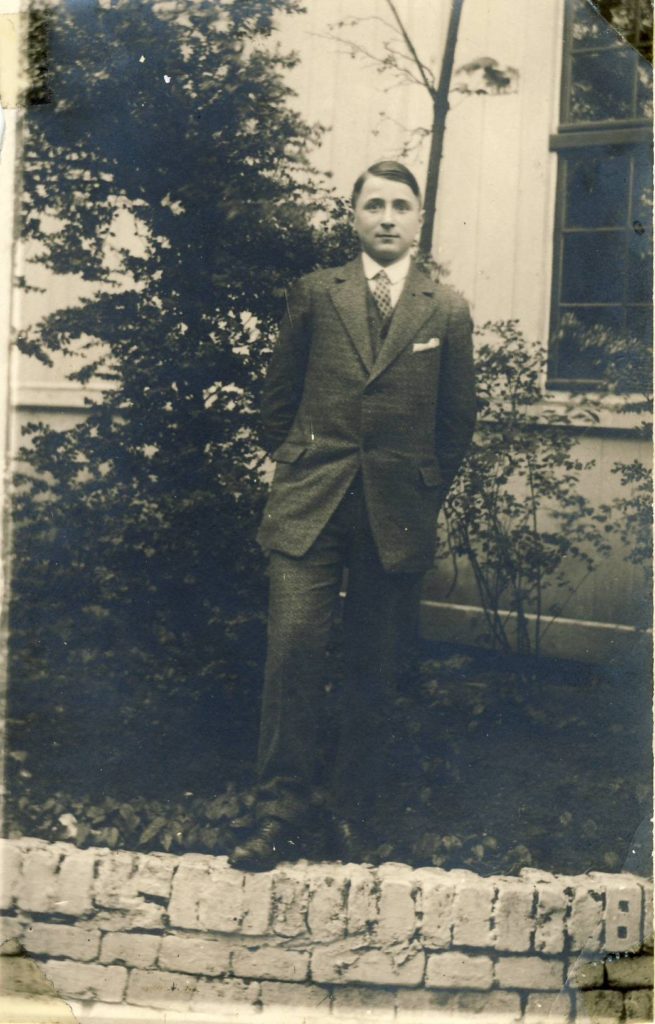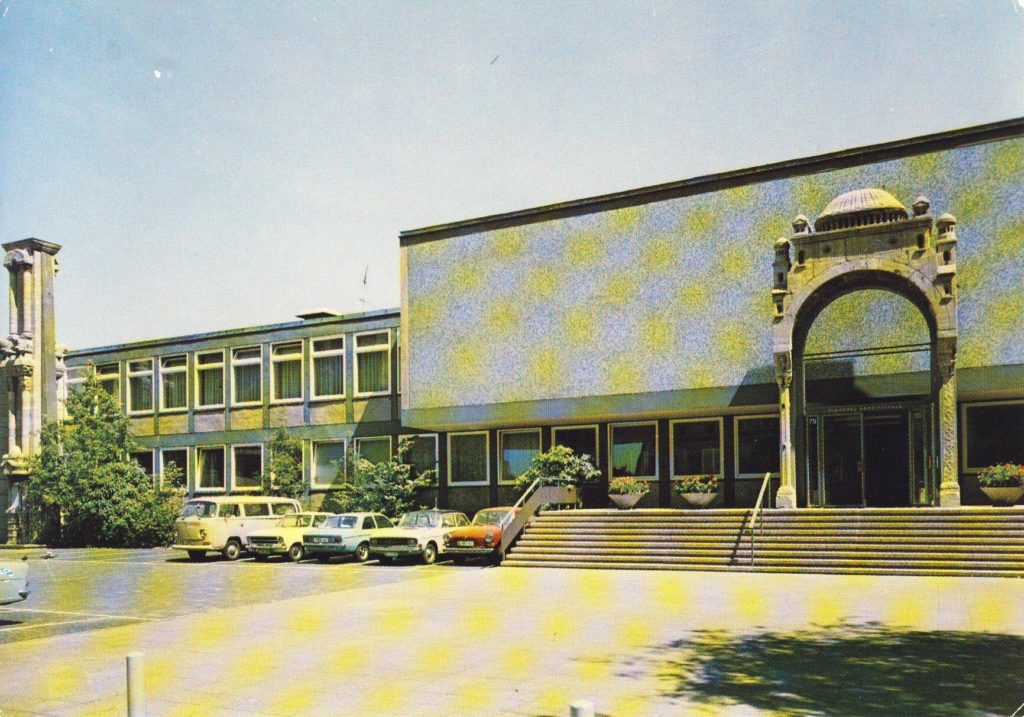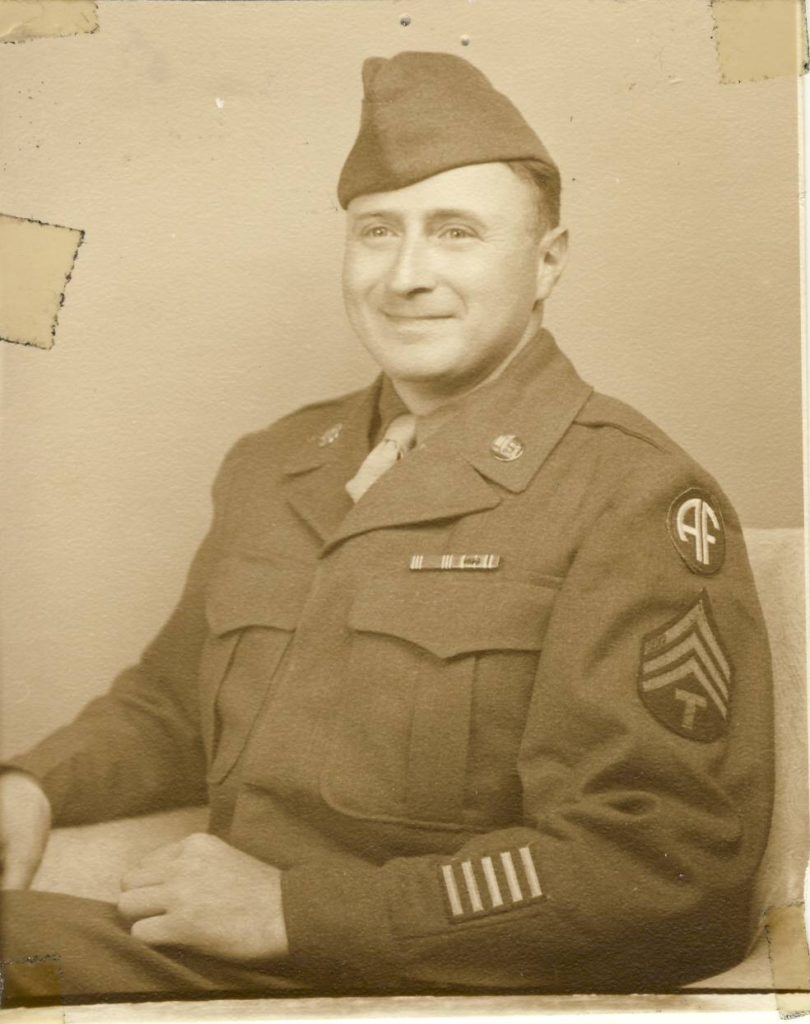PRINCE: My name is Vida “Sister” Prince and today is Friday, June 14th, the year 2002, and I am interviewing Heiman Bremler for the Oral History Project of the Holocaust Museum and Learning Center. We will mainly be discussing the Olympics in 1936 held in Berlin, and how this – how this affected the Jewish community and the Jews in Germany which were already under stress and discrimination from the Nazis. Mr. Bremler was living in Berlin at the time. He has already been involved in an oral history interview at great length done by Evelyn Young in the 1980s and it was a very detailed description of his life. And this is just an addition to that interview. (TAPE STOPS)Mr. Bremler, your interview with Evelyn Young was done December 18, 1986 and it was excellent – excellent interview, and which will be a wonderful teaching tool for educational purposes. And we thank you for that, and I looked forward to talking with you today. (TAPE STOPS)Mr. Bremler, using some quotes from The World Must Know from the Holocaust – U.S. Holocaust Memorial Museum, this is – this is what they said about this time. It has been noted that, “the most impressive achievement of Nazi propaganda was the international public relations effort that surrounded the 1936 Berlin Olympics…and that stories of anti-Semitism and the suspension of political freedom had been overstated by journalists and diplomats alike…Tourists returned from Berlin had reported to Roosevelt that ‘The synagogues were crowded and apparently there is nothing very wrong.’” That was their quote. Mr. Bremler, talk to me about how it was for you and your family and Jews in Berlin, and maybe all over Germany – how it was right before the Olympics and then what the changes were during the Olympics and then afterwards. Okay.
BREMLER: (PAUSE) Well, in September, 19 hundred and 35 they brought the Nuremberg Laws, and we were worried because according to these laws we were deprived of citizenship. We no longer were Reichsburger, German citizens; we were now only Staatsangehoerige, subjects to the state. So we were very worried about this new development and we really…we really thought about what we could do if we should perhaps really work hard to emigrate or something. We were really worried. Then 19 hundred and 36 came. Things changed somehow because all the things which had been done before were somehow suspended. Nothing was done. For instance, we had occasionally boycotts in 1935 – my father had a mens’ clothing store. So sometimes occasionally there was a boycott. 1936, no boycott, and nothing was done against the Jews – whatever inscriptions they had, or whatever…that all was taken off. There were some inscriptions already against the Jews so…but all these things were taken off. And a person who came to Berlin might have thought that everything was normal. In a way it was not so good, in retrospect, because it gave us a false sense of security, that everything would be all right, that everything would straighten out. Yes, the synagogues were crowded. I remember one service for the Jewish war veterans in which the whole synagogue on Oranienburger Strasser, where I had been Bar Mitzvah, was crowded to the last with all the Jewish war veterans as a sign that they really believed the country would still be their country. And I still remember the sermon – Rabbi Doctor Salomonsky, “Stay in the country and make a decent living. Bleibe im lande und haehredich redlich.” It gave us actually a false sense of security. It was a good year, but it was not so good because we felt too secure.
PRINCE: Sort of like a wasted year –
BREMLER: Yeah.
PRINCE: – for action, to do something. That’s very interesting. Did you – did you understand why it was being done that way? Did you connect it with the Olympics? Did you realize that?
BREMLER: Yes, I realized it was the Olympics. The Olympics was big business. I mean, they came from all over the world for the Olympics and it was enormous income for – for Germany which needed money. And Hitler, for purposes which were not so well-known, but he used it for…re-armament at that time. He planned re-armament and he started 1936, and money; he wanted money to – to rebuild the German armed forces and so on and so forth. So that was big business and they wanted it, and that’s why they did it.
PRINCE: Did…did you know anybody – yourself or any of your friends that knew people that were coming from other countries so that – that would be interested in your situation.
BREMLER: Well, no. I, I do not think we had any – any contact with these people at that time, but we had of course the feeling that they did not know what really was going on. And they should have known because, after all, even if everything looked superficially all right, it wasn’t all right. Jews could not take part in the Olympics, hmm?
PRINCE: Right.
BREMLER: Daniel Prenn was considered one of the best tennis players or so; he was not permitted. There was, let’s see…Gretl Bergman. Gretl Bergman who was outstanding in jumping, and (PAUSE) was from Wuerttemberg, from South Germany, was not permitted. There was no Jews permitted in the Olympic Games. So it isn’t so that they did not know anything about it and I think they let themselves be fooled because even if it looked on the surface that it was all right, they only had to look a little deeper. It was not all right.
PRINCE: Yes, I wonder why they didn’t.
BREMLER: I think that there were people who – who didn’t care, you know, who didn’t care. And I understand that…here it was suggested in the United States not to take part but that while there were anti-Semites, there were also people who said, “We have to be – our people have a right to become heroes in the Olympics,” and so on. So there were strong forces, I think, who…who wanted to take part in the Olympics. Although there were some people I think, in the United States especially, who were against participation. But they were the minority.
PRINCE: Yes…and there were Jewish athletes, obviously, that did not take part in it.
BREMLER: Right.
PRINCE: I think, uh…Let me ask you this. What were some of the things that you could do in that particular year that you weren’t able to do? And how did you learn that it was different, besides the boycotts?
BREMLER: Well, I lived in Berlin, you know, and Berlin was still not too pro-Nazi. There was still an opposition in Berlin, especially where I lived. I lived in Berlin Lichtenberg and that was east of Berlin and there was still many Socialists, even Communists, and quite a few Democrats. In other words, there was still quite a few non-Nazis. That’s why we still made a living, not really a good living, but still – we made a living still. If they made an occasional boycott, they were not really so successful. They were not supposed to do too much. They could only stand in front of the store and say, “Jewish business, Juedisches Geschaeft.” They could not force the people not to come in, and many went in. Let them stand. So it was not so successful yet. So…and in ’36 there were no boycotts at all. Right? So, as I say, that year was a false sense of security.
PRINCE: But could you go to dinner? Could you go to restaurants? Could you go to libraries still? Could you sit on park benches still? Could you do those – move around like you always did?
BREMLER: No, well you couldn’t go to certain places, couldn’t go to…
PRINCE: And did that change in that year? And how did you know?
BREMLER: Well, well in that year they played that down, but it was not completely eliminated. As I say, if they would have looked deeper, they would have found. It was still some places where Jews could not go. I think they were absorbed by the Olympic Games, and well, the Jews, that was something on the sideline, you know, so…
PRINCE: Well who could imagine…
BREMLER: Yeah, you know, yeah, who could imagine what would come.
PRINCE: Right. And then, did any Jewish people go to the Olympics?
BREMLER: I think most of them did not. I remember that the Maccabee, which was a Jewish club, a Jewish…sport organization, refused to go. That was the largest one we had. Because it was – one thing was known, Jewish athletes were not permitted, and since Jewish athletes were not permitted, the Maccabee Club refused to go. So I think that Jews truly did not go to the Olympic games because that was the largest one. And they gave a statement that they refused to go because Jewish athletes really were not admitted. As I told you, if they would have looked deeper (EMPHATICALLY) they would have found that the whole thing was not good. But they didn’t really want to look deeper. They were…
PRINCE: So then, when it was over…
BREMLER: Well, (PAUSE) 1937 they resumed again with the boycotts gradually. But, I would say they was still rather careful in 1937. See, in such a Fascist state, in such a National-Socialist state, you only read what the paper says. And the paper was under propaganda minister –
PRINCE: Goebbels.
BREMLER: Goebbels. So they only tell you – told you what…the result of such a thing is that since you don’t read anything in the paper, you have rumors, rumors. You have a whole – people to people – this is taking place, this is taking place. You don’t know if these rumors are right, or if they’re wrong. You hear them, and you have to make your own judgement. Now, 1937 was a year of rumors. It came out, somehow, there were scandals, you know, Hitler had gotten rid of the leaders of – two leaders of the German army, Fritsch and Blomberg. That was in the paper, but it said of course in the paper only because of health reasons. Right? But it was not so. These people opposed him because he had made a speech to the leaders that he plans war.
PRINCE: The Reichstag?
BREMLER: Yeah, 1937 he began to plan war. These people did not want to cooperate with him; therefore, they were discharged. Under peculiar circumstances, Fritsch was accused of homosexuality, and Blomberg, that he had married a prostitute. It was a year – it was rumors and scandals. But, now we know what was going on; at that time we only heard the rumors, you know? The rumors. So, I would say that life went on and my father still made a living with his mens’ clothing store. But the rumors made us more nervous. And at the end of ’37, my father, may he rest in peace, wrote to my uncle in America, in New York, whether I could come perhaps there because, well, we figured at that time whatever comes, they will leave the old people alone. He was already 66, and my mother, I think 60 or so. But with the young people, you already were suspicious that something might happen. And he wrote to my uncle and my uncle, in ’38 he sent affidavit. And therefore, just today, 14th of June (SLIGHT LAUGHTER) 64 years ago, 14th of June ’38, I left Berlin.
PRINCE: Oh my…isn’t that interesting, Mr. Bremler. Oh heavens, gosh…
BREMLER: (LAUGHTER)
PRINCE: What a very, very nervous, unnerving, stressful thing that people went through to see what was happening, and feel it, and worry and, it’s…trying to decide what to do, and…
BREMLER: So…they had some (PAUSE) afterwards, you know, lately they tried to make some gestures, you know. They had my wife and me in Berlin, 1988.
PRINCE: Oh.
BREMLER: Yeah, for a visit. They paid for the whole visit. It was a whole week in Berlin.
PRINCE: Tell me about that. You got a letter and…
BREMLER: Yeah, at that time…They published a book, “Juden Lichtenberg” the Jews of Lichtenberg, the suburb of Berlin where we lived. And they let me write an article in it.
PRINCE: Oh.
BREMLER: My parents…(SHOWING BOOK)
PRINCE: Oh.
BREMLER: It’s written by me, of course in German. See…
PRINCE: Uh huh, yes, how interesting…how did you feel when you got the letter?
BREMLER: Well, I was wavering, you know, what, you make such a visit with mixed feelings, remembrances, you know. But I decided, well, to go and see the old places again, and I went – well, there was a Jewish community, a Jewish congregation, yeah and…
PRINCE: People who had stayed or moved there…
BREMLER: Yeah. They were mostly not descendants of German Jews. They were actually mostly Russian Jews who had immigrated to Germany.
PRINCE: Oh…and that’s kind of amazing, isn’t it? That they should go to Germany…BREMLER: Yeah, well they were – the new Germany they thought comparatively safe, which it was. Although I think today it’s again getting bad. But in comparison to Russia, this new Germany was much better, you know. And, the Germans somehow felt obliged to do something.
PRINCE: Were you glad you went?
BREMLER: Yes, I was glad. I went to the synagogue too there. And they called me to the Torah there. And afterwards I spoke there to the…I spoke to them there too.
PRINCE: And that was where you’d been Bar Mitzvahed?
BREMLER: Yeah, it was not the same synagogue.
PRINCE: Oh, it wasn’t.
BREMLER: No, no.
PRINCE: Did yours, was yours – had been destroyed?
BREMLER: Yeah, but there – to say the truth (LAUGHTER) it was once, yeah, I think a man who wanted to record myself, and then he didn’t want to do it. Actually, this was the only synagogue which was not destroyed in Kristallnacht. All the Jews – all the synagogues in Kristallnacht were destroyed. But there, there was a police captain there, that this is on government protection according to a law – it was a beautiful building, you know, and it was under a law of government protection, and he did not permit to – to burn this synagogue. So it was actually not burned –
PRINCE: Like an historical landmark.
BREMLER: Yeah, landmark. But what happened is, during the war the Allies bombed Berlin and the synagogue was bombed by the Allies. (LAUGHTER) So, they rebuilt it – not completely, but the front they rebuilt…
PRINCE: So, what did you say about somebody was recording and didn’t want to be recorded…?
BREMLER: Well, they wanted to bring it here I think somehow, but the synagogue was, uh, a lady then in the Federation building who had some kind of contact that was to come here on television. And then he didn’t do it because he didn’t want to…(LAUGHTER) I couldn’t lie; it was at that time, it wasn’t – it was bombed by the Allies.
PRINCE: Oh, I see. He wanted to say it was destroyed by the Germans on Crystal Night and then it was that – the Allies…
BREMLER: If I say a lie, it’s next time in the paper that Jews say lies, right?
PRINCE: Right. (LAUGHTER) Well, it’s hard to sleep at night when you lie anyway. (LAUGHTER)
BREMLER: Yeah.
PRINCE: So, what did they have you do there? Were you with a group – with other people that had lived there? Is that what they did? Invite you with other people?
BREMLER: Oh, you mean on the visit? Yeah, well, the Jews greeted us too, you know, and they said we should come to the synagogue service. And that’s why I went with my wife to the synagogue service, as I told you. Otherwise, they had a – an own program for us. They showed us Berlin, how it is now, after all has been rebuilt, you know. Of course I have so many – I saw actually only the West – at that time the wall was still standing. They took us also to the – to see the wall. And we were able – I had acquaintances who took us to East Berlin. You could go to East Berlin; you had to have a certificate. So I saw the East Berlin where my parents’ store was. The store was still there, but the house where we lived was not – was bombed out. But the store was there. It was at that time, the East side was Communist, and it was actually government owned at that time. It was not a mens’ clothing store; I don’t know what it was, some kind of other merchandise I think…
PRINCE: Did you feel like you were dreaming?
BREMLER: Sometimes. Sometimes it looked all so unreal. (LAUGHTER)
PRINCE: Yeah.
BREMLER: (LAUGHTER) It looked so unreal sometimes.
PRINCE: Well, this is – this is – (LOOKING AT BOOK)
BREMLER: These are my parents, yeah.
PRINCE: Did anybody – they’re handsome people; they look like they could live right now. They’re not old-fashioned looking or anything really. They’re beautiful people. (PAUSE) Do you have a translation of this?
BREMLER: No I don’t…Oh, Spiel – Spielberg? I think he – he sent somebody here to interview me. (SHUFFLING PAPERS)
PRINCE: Now what is this? (READING) “Survivor of the Shoah.” Oh, you did one for them too.
BREMLER: Yes.
PRINCE: I see.
BREMLER: Not he himself; he sent somebody, uh…
PRINCE: Steven Spielberg didn’t interview you, right? (LAUGHTER)
BREMLER: Not – he himself didn’t come, but he did send somebody.
PRINCE: Uh huh, all right. Did you enjoy doing that?
BREMLER: Yeah, it was all right.
PRINCE: Okay, well that’s good. It’s important. So I wonder sometimes do you think that – because things, in the world is such a mess, that these interviews will do any good. I mean, will change somebody or feel that –
BREMLER: Yes, I think they will do good here because if you – if people – if you don’t say anything, well, it will be forgotten. But if you do, people do listen, and learn, you know, and it changes the picture. I have read a history that – in Israel, yeah, before the Eichmann trial, nobody real – the youth actually didn’t know anything and didn’t care. Well then the Eichmann trial came; it came to them what really happened. And so in the same sense, I think also here, the interviews here, are good and so that the youth which doesn’t know anything at least learns what happened.
PRINCE: Yeah, I think… I think examining just what, well, like you said today, that that year, ’36, let you all kind of let everything down. I mean you thought that things were kind of maybe going to be okay. And that’s very, you know, that’s really kind of – trying to get inside of what was going on and the mentality that you all had and what you were going through was like a see-saw kind of existence.
BREMLER: Yeah, right, right.
PRINCE: Do you have anything more you want to tell me about that time we were talking about, or the trip? And then I would like to examine another subject.
BREMLER: No, I think I told you everything I remember. I told you that I finally made it, and after…
PRINCE: Okay…Your date of birth was 19…
BREMLER: 10.
PRINCE: 10, okay. So when you left you were, when you left…
BREMLER: 28.
PRINCE: You were 28. Well, you were a grown person, weren’t you?
BREMLER: Yes, yeah…
PRINCE: But that didn’t make it any easier to be leaving your parents under such tragic…
BREMLER: No, it was very hard. Some things were good, that I had learned English. So I spoke English which helped me…
PRINCE: Did you take that in school? Was that –
BREMLER: Yeah, as a matter of fact, in pre-Hitler schools I had to learn three languages. I had to learn – in high school I had to learn Latin, French and English.
PRINCE: You had to learn English.
BREMLER: That’s pre-Hitler.
PRINCE: Was that a choice you made?
BREMLER: No.
PRINCE: No, that was…interesting…All right, well then, for the people who are listening to this tape right now – as I said before, will go – probably have already listened to the first tapes that Mr. Bremler did with Evelyn Young. So I would like to just get – you mentioned in the interview, I think something about the Self-Aid Society –


